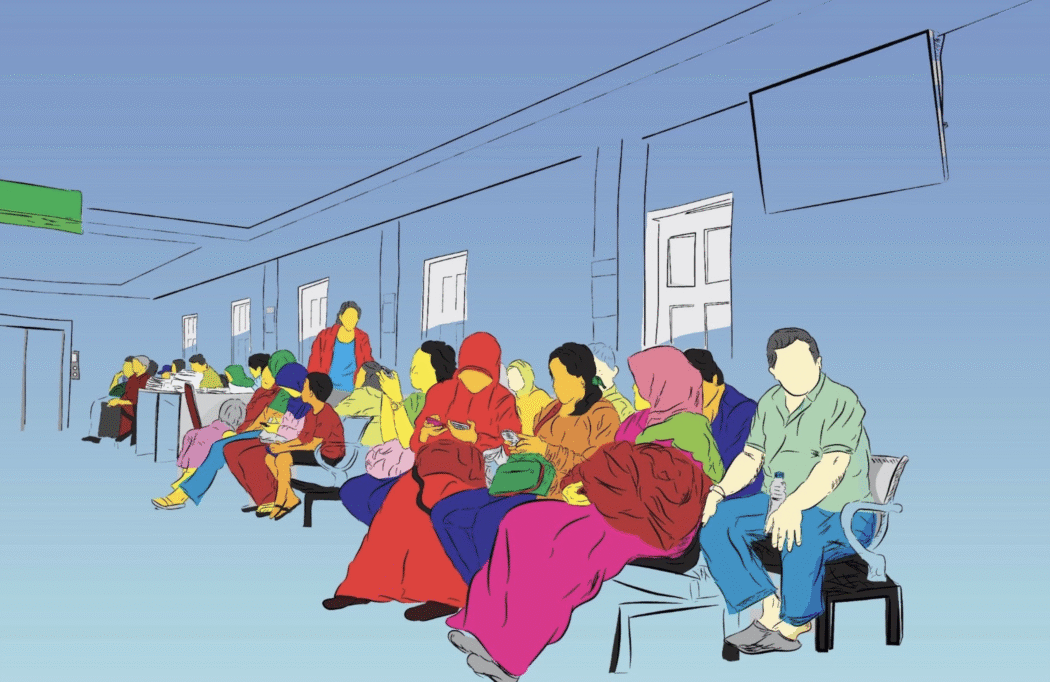Whether it’s a common cold, a doctor’s note, or a routine check-up, most Quebecers know firsthand how difficult it can be to find a family physician within a reasonable time frame. Unfortunately, access to general care has become increasingly difficult to find in Quebec’s public health sector, and many individuals with mild symptoms turn to the hospital emergency services to get the care they need. This overwhelms emergency service/ hospitals, leading to longer wait times and a decrease in quality of care. As a result, Quebec’s residents are looking to the government for fast resolutions to a multi-layered structural flaw.
In response, Health Minister Christian Dubé introduced Bill 106 last May, which aims to improve access to primary care by mandating that local health authorities assign each Quebec resident to a family doctor. Under this reform, up to 25% of a doctor’s salary (Specialist and Family) would depend on performance targets, such as number and vulnerability of patients, ultimately shifting greater control to the Ministry of Health.
Such a drastic change — without significant input from the FMSQ (Fédération des médecins spécialistes du Québec) current physicians — has raised serious concerns about how this will affect existing patients, physicians’ working hours, and the doctor–patient relationship. Some warn that the added pressures could drive more doctors to leave Quebec altogether in search of more reasonable workplace environments. While doctors agree the shortage of family physicians needs to be addressed, many argue that increasing the number of patients per doctor will undermine care quality. Critics believe that relying on performance targets ignores deeper structural problems in the system, including shortages of medical staff, space, and equipment.
As a response, current doctors have taken a stand against the Bill through a strike. The first phase of the strike has acted against teaching current medical students—since Sept 15 McGills medical students have not been taught by specialists. Ryan Kara, executive president of the Medical Student Society of McGill University’s Montreal campus, said that third and fourth-year students have seen their clinical rotations disrupted for the pre-clinical level, raising concerns that delayed training could affect graduation and residency eligibility. He noted that nearly 90% of courses have now only been taught through pre-recorded lectures from previous years, a shift that does not allow students to pose questions or gain feedback. Kara emphasized meaningful consultation with doctors is essential for effective change. He provides some hope in finding a resolution for the students by saying “our goal is for the government and FMSQ to sit at the table and negotiate how to make the health system better. And the issue with Bill 106 is essentially that they’re just putting something forward without consulting doctors.”
October 4 marks the official day of the teaching boycott set by the FMSQ to advance the pressures put on the government, but has since officially been set to halt until further notice, although many students have already been experiencing disruptions. As Ryan Kara explained, physicians had few avenues to protest without directly harming patients, FMSQ was left with only two options: halting teaching or boycotting administrative duties. FMOQ (Fédération des médecins omnipraticiens du Québec) on the other hand, only stopped clinico-admin duties.
Meanwhile, students have used their right to protest as a means to voice their concerns, gathering both at McGill and at the National Assembly in recent weeks to gain media coverage and bring public attention to the issue. The FMSQ and FMOQ have since agreed to enter mediation and the FMOQ has chosen to put the teaching strike on pause, while the FMSQ will continue through the mediation process. Minister Dubé’s office declined to provide a statement for this article, citing ongoing negotiations.
While the fate of Bill 106 is still unresolved, mounting pressure from the FMSQ, physicians, students, and Quebec residents mean that the debate is far from over. What remains to be seen is whether the eventual outcome will ease the strain on patients seeking care or further divide the government and the medical community. More concerningly, ramifications of this continuousback and forth will be evident in 2 years if current studying doctors do not graduate on time because of these issues, furthering the scarcity of family doctors.








